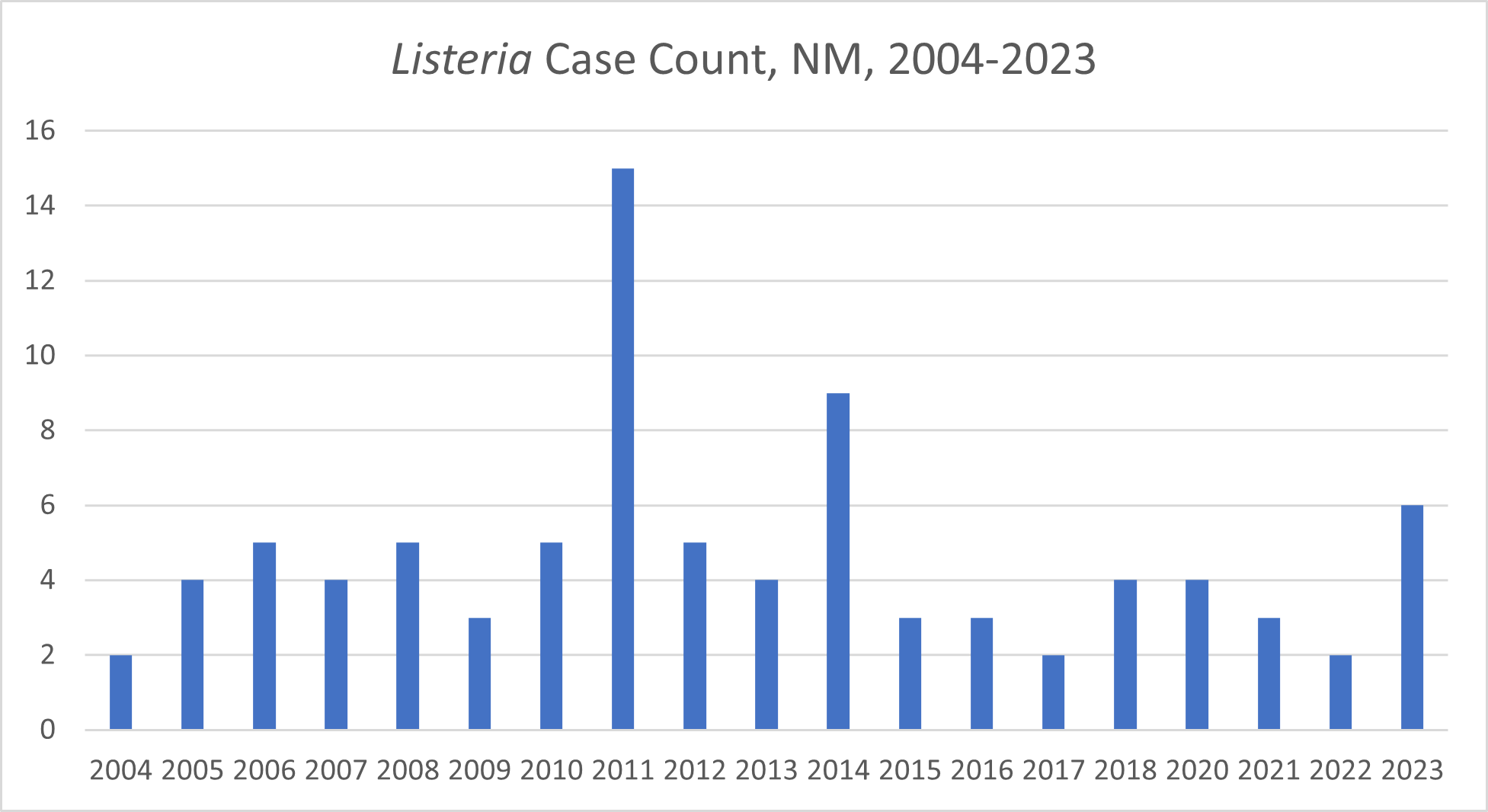Listeria
Listeriosis is a serious infection usually caused by eating food contaminated with the bacterium Listeria monocytogenes. It is a rare disease, and while healthy adults and children are occasionally infected, they rarely become seriously ill. However, older adults, pregnant women, and newborns may become so severely ill that they require hospitalization. The signs and symptoms of listeriosis include fever, headache, muscle aches, nausea, and diarrhea.
Listeriosis results from eating foods contaminated with Listeria, including cantaloupes, unpasteurized milk, soft cheeses, hot dogs, deli meats, undercooked poultry, and unwashed raw vegetables. Listeria can be found in soil and water and is killed by pasteurization and cooking. Sometimes contamination may occur after cooking but before packaging. Unlike most bacteria, Listeria can grow and multiply in some foods in the refrigerator.
Listeria Infection in New Mexico and the United States
Active, population-based surveillance for Listeria has been conducted throughout New Mexico since 2004 as part of the New Mexico Emerging Infections Program (NMEIP) FoodNet system. Medical records for residents of New Mexico with listeriosis are reviewed for demographic and other epidemiologic information. Through this surveillance system NMEIP is able to examine and describe Listeria infections in the state. Data from New Mexico and other EIP FoodNet sites are aggregated by the Centers for Disease Control and Prevention to generate national estimates. From 2004-2023, 88 cases of listeriosis were identified in New Mexico.
Figure 1: Number of Listeriosis Cases by Year, New Mexico


